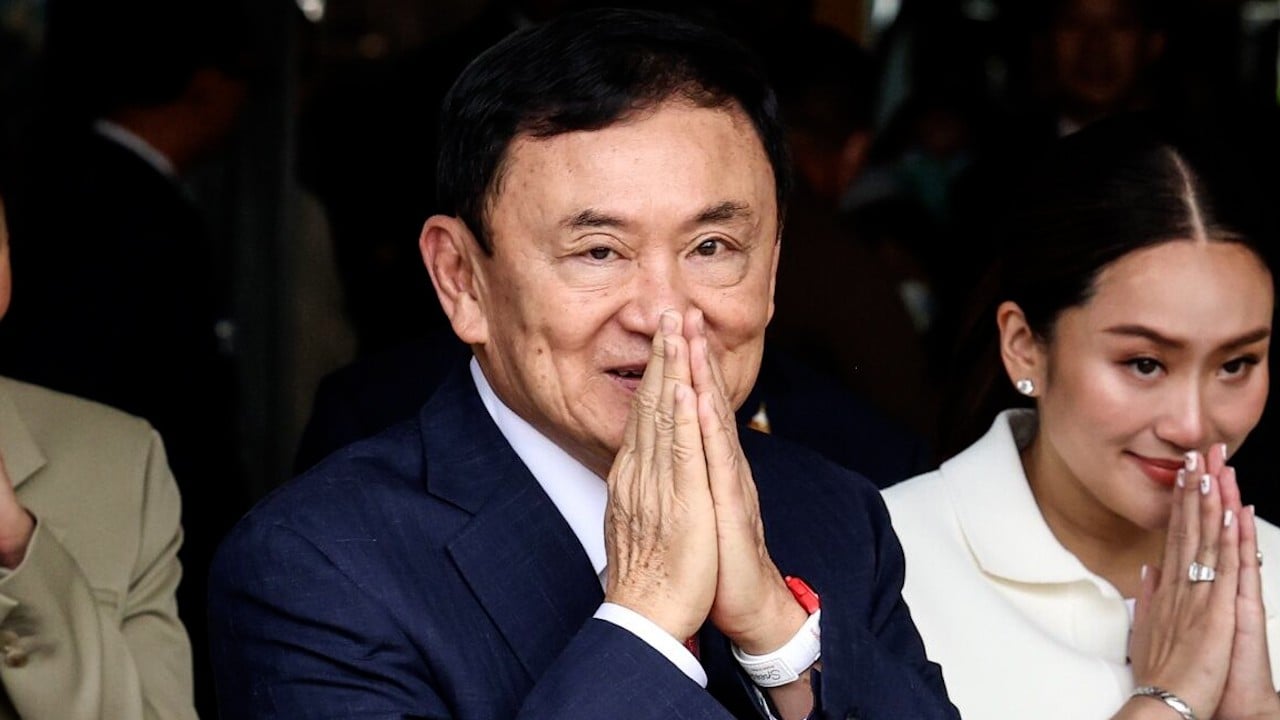
Thaksin return may bring badly needed stability to Thailand
- Former fugitive prime minister can help new government led by member of his own political party balance urban and rural interests
Former Thailand prime minister Thaksin Shinawatra has remained his country’s most divisive figure, even during 15 years in self-exile. Yet the billionaire’s return this week could help bring stability to a restive nation mired in political deadlock since elections in May.
Hours after he landed, the Thai parliament elected the leader of Thaksin’s political party, property mogul Srettha Thavisin prime minister at the head of a coalition including former opponents.
To cap the political and constitutional drama Thaksin, 74, is expected to seek a royal pardon, having been brought before a court on his arrival and jailed for eight years on charges heard in absentia. He was later admitted to a police hospital with recurrence of pre-existing ailments.
In a country plagued by military coups on average every seven years since becoming a constitutional monarchy in 1932, Thaksin won two landslide elections in 2001 and 2005, before being toppled by the military a year later, sparking a crisis from which Thailand is yet to emerge.
Experts now deem a royal pardon necessary to end the two-decade political rift between the Shinawatra faction and the royalist military elite.
Thaksin, whose efforts to combat poverty earned him overwhelming popular and rural support against the elite, publicly insists he is returning only to see his grandchildren and has no interest in politics.
Yet his return comes as the Thai establishment joins with Thaksin loyalists to try to end a new crisis, sparked by the shock election win of the radical Move Forward Party.
The party’s agenda includes removing the military from power, tackling monopoly businesses and even reforming the royal defamation law, which criminalises criticism of the monarchy.
Thailand’s jailed ex-PM Thaksin moved to hospital 1 day after return from exile
To keep it out of office, Thaksin’s Pheu Thai party has joined a coalition including groups affiliated with the generals who have hounded Shinawatra forces from power with two coups in two decades.
Hopefully, the bid for a pardon reflects a political compromise that can restore stability needed to underpin investor confidence and economic growth in the wake of the pandemic.
That said, and given young people remain widely dissatisfied with the current system, the outcome amounts to kicking the can down the road.
In the long run the country’s stability and economic progress will depend on whether people feel their demands have really been heard, and meaningful efforts made to meet them. That is the real challenge for a governing coalition of expedience among former enemies.
Short-term stability will be temporary pending consensus on longer term answers to deep-seated problems. Striking a balance between urban and rural interests ultimately will be paramount.


